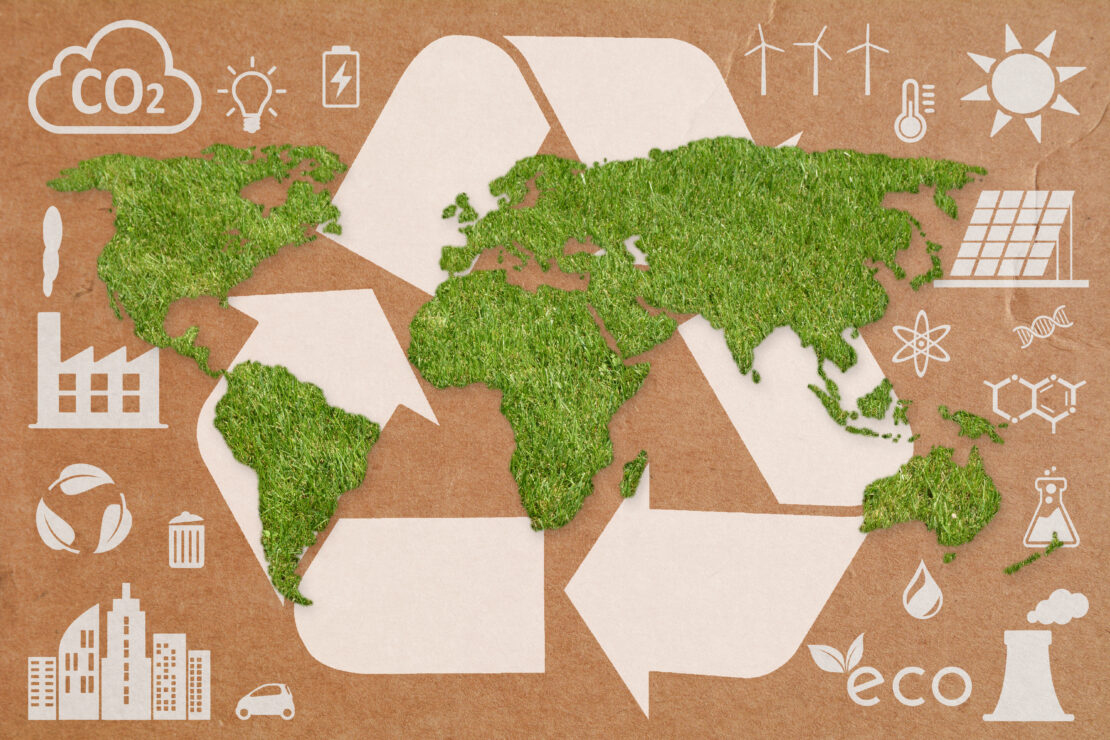
At EF-group we’re committed to environmental sustainability projects, and we know that collaborating with our supply chain partners is crucial for driving global recycling efforts. By working together, we can share resources, knowledge, and best practices to achieve common sustainability goals.
What does that collaboration involve?
By involving supply chain partners in recycling programs, companies can extend the impact of their sustainability efforts beyond their own operations. This collaborative approach not only benefits the environment but also strengthens relationships with partners, suppliers, and customers who value eco-friendly practices.
To help drive global recycling, it is essential to implement sustainable practices in supply chain operations. This includes reducing waste generation, optimising transportation routes to minimise carbon footprint, and sourcing materials from environmentally responsible suppliers. Companies can also prioritise the use of recyclable materials in their packaging and products.
By integrating sustainability into supply chain operations, businesses can not only reduce their environmental impact but also create a positive ripple effect throughout the value chain. Sustainable practices not only benefit the planet but also contribute to cost savings, brand reputation, and customer loyalty.
Technology plays a vital role in driving efficient recycling processes within the supply chain. Companies can leverage data analytics and automation tools to optimise waste management, track recycling metrics, and identify areas for improvement. By implementing innovative technologies, businesses can streamline their recycling operations, reduce inefficiencies, and increase overall sustainability performance.
Additionally, digital platforms and software solutions can facilitate communication and collaboration among supply chain partners, enabling real-time data sharing and transparency. Technology-driven solutions not only enhance operational efficiency but also empower companies to make data-driven decisions that lead to more effective recycling practices.
Measuring and monitoring environmental impact is essential for evaluating the effectiveness of recycling initiatives and identifying areas for enhancement. Companies can track key performance indicators (KPIs) such as waste diversion rates, energy consumption, greenhouse gas emissions, and water usage to assess their sustainability progress. By setting specific targets and regularly monitoring results, businesses can drive continuous improvement and demonstrate their commitment to environmental responsibility.
Transparent reporting of environmental performance can also help to build trust with stakeholders, attract eco-conscious consumers, and differentiate companies as leaders in sustainable business practices. Measuring and monitoring environmental impact not only drives accountability but also fosters a culture of continuous learning and innovation.
Creating a culture of environmental responsibility within the supply chain is key to driving global recycling efforts. Companies can engage employees, suppliers, and partners in sustainability initiatives through training programs, awareness campaigns, and incentive schemes. By fostering a shared sense of environmental responsibility, businesses can inspire collective action towards reducing waste, conserving resources, and protecting the planet.
And what’s more, by embedding environmental values into business culture, companies can cultivate a sense of pride and purpose among stakeholders, leading to increased engagement and commitment to sustainability goals. Creating a culture of environmental responsibility not only drives positive behaviour change but also fosters a sense of unity and collaboration in the pursuit of a greener future.


